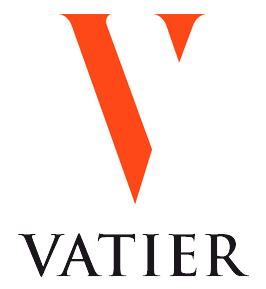Forbidden for more than seventy years by Article R. 4127-19 of the Public Health Code on the grounds that medicine should not be practised as a business, advertising and communication are now free.
Several decrees, published on 24 December 2020, set out the new rules on professional communication for six health professions: doctors (Decree No. 2020-1662 of 22 December 2020), dental surgeons (Decree No. 2020-1658 of 22 December 2020), midwives (Decree No. 2020-1661 of 22 December 2020), nurses (Decree No. 2020-1660 of 22 December 2020), chiropodists (Decree No. 2020-1659 of 22 December 2020), and masseur-physiotherapists (Decree No. 2020-1663 of 22 December 2020).
The regulatory authority has therefore taken note of the recommendations of the Council of State and of the Court of Justice of the European Union.
Indeed, as a reminder, the latter had considered that Article 56 of the Treaty on the Functioning of the European Union, which prohibits restrictions on the freedom to provide services, must “be interpreted as precluding national legislation (…) which prohibits in a general and absolute manner any advertising relating to oral and dental care services” (CJEU, 4 May 2017, Vanderborght, case C-339/15).
Furthermore, it had added that Article 8 of Directive 2000/31/EC of 8 June 2000 on electronic commerce must “be interpreted as precluding national legislation (…) which prohibits in a general and absolute manner all advertising by members of the dental profession, in so far as it prohibits them from making any use of advertising practices to promote their person or company on their website” (CJEU, Order, 23 October 2018, Conseil départemental de l’ordre des chirurgiens-dentistes de la Haute-Garonne, case C-296/18).
As a result, the Council of State, to which two appeals were referred for misuse of power against two implicit decisions by which the Minister of Solidarity and Health rejected the requests for repeal of the regulatory provisions prohibiting the use of advertising for doctors and dental surgeons (Articles R. 4127-19, R. 4127-215 and R. 4127-225 of the Public Health Code), confirmed the non-conformity of this general and absolute prohibition with European Union law (EC, 4th and 1st joint chambers, 6 November 2019, no. 416948 and no. 420225).
Consequently, the provisions prohibiting advertising by health professionals had to be repealed and the sanctions imposed by the Medical Council on this ground were illegal. It was therefore up to the regulatory authority to redefine the rules governing the advertising of health professionals.
What do the new rules provide for?
While the prohibition on practising medicine as a business is still laid down by Article R. 4127-19 of the Public Health Code, the principle of prohibiting advertising is now replaced by the principle of free communication and advertising. Health professionals are therefore free to communicate, but only for information purposes and never for commercial purposes.
Several developments can be highlighted.
- Communication about personal activity, skills and background
Health professionals may communicate on their competences, professional practices, professional background and conditions of practice by any means, including on a website, the idea being that this information contributes to the patient’s free choice of practitioner.
Therefore, the professionals presenting their activity to the public must include information on the fees charged, the methods of payment accepted and the obligations laid down by law to allow access to prevention or care for all persons without discrimination.
However, this communication is subject to a framework: it must remain fair, clear, honest and non-comparative, so that it must not use comments by third parties, be based on comparisons with other doctors or establishments, or encourage unnecessary recourse to preventive or therapeutic procedures. Lastly, it must not undermine the dignity of the profession or mislead the public (Articles R. 4127-19-1 paragraph 1 and R. 4127-53 of the Public Health Code).
- Communication for educational, scientific or health purposes
Practitioner may communicate to the public or to other health professionals, for educational or health purposes, scientifically substantiated information on matters relating to their discipline or to public health issues.
Nevertheless, caution and moderation are required, as ethical obligations must be respected and the presentation of unconfirmed hypotheses as acquired scientific data is excluded (paragraph 2 of Article R. 4127-19-1 of the Public Health Code).
This is obviously also the case when professionals participate in an educational, scientific or health-related public information campaign.
The aim of these interventions must not be to profit from them in their professional activity, nor to benefit the facility in which the health professional works, nor to promote a cause that is not of general interest (Article R. 4127-13 of the Public Health Code).
- Communication in directories for public use
Health professionals can expand the information in directories for public use. Whereas before, this information was strictly limited to three elements (identity of the professional, professional address, days and hours of consultation; status with regard to health insurance organisations; qualification), professionals may now indicate their speciality, titles, diplomas and functions recognised by the national council of the physicians as well as “other information useful for informing the public”.
The decree does not specify what is meant by the latter mention. It will probably be up to the National Council of the Physicians to assess the scope through recommendations. However, the general idea of the texts is that this information contributes to the patient’s free choice of practitioner.
However, it remains prohibited for the professional to obtain by any means (such as remuneration for example) a priority numerical listing in the results of an internet search (Article R. 4127-80 of the Public Health Code).
- Communication of the establishment or modification of its practice
Whereas the previous code of ethics limited the choice of medium and gave the departmental council of physicians a prior right of review before their publication, the professional will now be able to communicate on any medium announcements at the time of establishment or in the event of modification of his/her practice. The decree does not require prior communication to the departmental council of physicians, but specifies that the professional must take account of the recommendations issued by the latter (Article R. 4127-82 of the Public Health Code).
Although medicine remains a unique profession that cannot be practised like any other commercial activity, it is clear that the rules governing advertising have become considerably more flexible.
These new provisions, by their clarifications, should enable practitioners to better understand the possibilities in terms of communication and advertising, and the public to be better informed about their health professional, while respecting the principles of confraternity, dignity of the profession and protection of patients.


